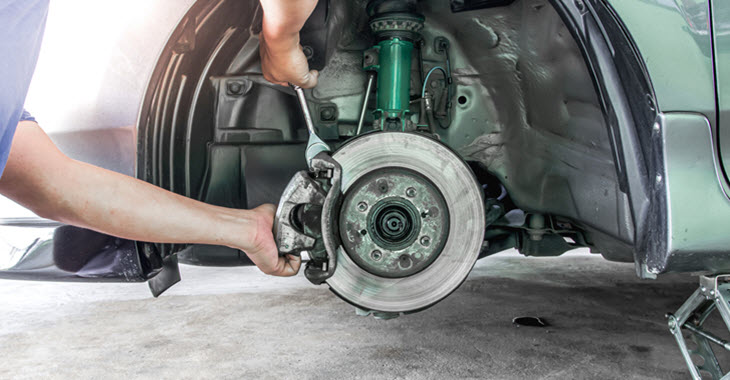Brakes are one of the most critical components of any vehicle, directly linked to safety and control. Yet, many car owners tend to overlook regular brake maintenance, considering it less urgent compared to engine or transmission upkeep. The reality is that maintaining your car’s braking system is essential for safe driving, optimal performance, and preventing costly repairs. In this article, we will explore why regular brake maintenance is non-negotiable and how neglecting it can lead to serious consequences.
Why Are Brakes So Important?
Brakes are crucial because they ensure your vehicle can stop safely and efficiently, regardless of the driving conditions. An effective braking system allows you to:
- Avoid Collisions: Immediate stopping power during emergencies.
- Maintain Control: Essential for maneuvering safely on slippery or uneven surfaces.
- Protect Passengers: Reduces the risk of injury during sudden stops.
- Enhance Vehicle Longevity: Properly maintained brakes prevent damage to other car components.
Without well-maintained brakes, your car becomes a potential hazard, both for you and other road users.
Signs That Your Brakes Need Attention
It’s crucial to recognize early signs of brake issues before they escalate. Here are some common indicators:
1. Squeaking or Squealing Sounds
- Cause: Worn-out brake pads.
- Impact: Reduced braking efficiency.
- Solution: Replace brake pads immediately to prevent rotor damage.
2. Grinding Noise
- Cause: Metal-on-metal contact due to severely worn pads.
- Impact: Damage to brake rotors and calipers.
- Solution: Immediate inspection and replacement to avoid further damage.
3. Vibrations While Braking
- Cause: Warped rotors or uneven brake pad wear.
- Impact: Reduced stopping power and steering instability.
- Solution: Have your rotors resurfaced or replaced.
4. Spongy or Soft Brake Pedal
- Cause: Air in the brake lines or a brake fluid leak.
- Impact: Inconsistent braking force.
- Solution: Bleed the brake system and check for leaks.
5. Brake Warning Light
- Cause: Low brake fluid, worn pads, or system malfunction.
- Impact: Reduced braking effectiveness or system failure.
- Solution: Immediate diagnostic check and servicing.
Pro Tip: Never ignore the brake warning light—address it promptly to ensure safety.
Why Regular Brake Maintenance Is Crucial
Neglecting brake maintenance doesn’t just compromise your safety; it also leads to expensive repairs down the line. Here’s why regular servicing is vital:
1. Prevents Brake Failure
Brake failure is not just inconvenient; it’s life-threatening. Regular checks help identify worn pads, leaking fluid, or compromised components before they result in catastrophic failure.
- Why It Matters:
- Worn pads and low fluid can cause brakes to stop functioning entirely.
- A failed brake system can lead to accidents, especially at high speeds.
- Best Practice:
- Inspect brake pads every 10,000 km.
- Replace brake fluid every 2 years or as recommended by your manufacturer.
Pro Tip: Use high-quality brake fluid to maintain optimal performance.
2. Improves Vehicle Handling
Brakes don’t just stop the car; they also help maintain stability during deceleration. Malfunctioning brakes can affect how your car handles, especially in sharp turns or emergency stops.
- Why It Matters:
- Unbalanced braking can cause your car to pull to one side.
- Uneven brake force affects the suspension and tire alignment.
- Best Practice:
- Regularly check brake fluid levels and pad thickness.
- Replace worn brake pads and resurface rotors as needed.
Pro Tip: Schedule a full brake system check during routine maintenance to catch issues early.
3. Enhances Safety on the Road
Your brakes are the first line of defense against collisions. Faulty brakes compromise your ability to stop promptly, which is crucial in unexpected situations.
- Why It Matters:
- Even a fraction of a second in response time can make a difference in avoiding a collision.
- Effective braking systems maintain control during emergency stops.
- Best Practice:
- Keep your braking system in top shape, especially before long trips or in harsh weather conditions.
- Conduct regular brake inspections to identify potential hazards.
Pro Tip: Test your brakes before starting long drives to ensure they function properly.
4. Saves You Money in the Long Run
Brake repairs can be expensive, particularly if you delay maintenance. Ignoring minor issues often leads to costly component failures, such as damaged rotors or failed calipers.
- Why It Matters:
- Worn brake pads can damage the rotors, leading to expensive replacements.
- Neglecting fluid changes can corrode brake lines, requiring costly repairs.
- Best Practice:
- Replace brake pads before they wear down to the metal.
- Perform regular brake fluid flushes to prevent internal corrosion.
Pro Tip: Investing in routine brake maintenance is far cheaper than replacing major components.
5. Maintains Optimal Stopping Distance
Effective brakes ensure that your car stops within a safe distance. Poorly maintained brakes increase stopping distances, which can be dangerous in emergencies.
- Why It Matters:
- Increased stopping distances make it harder to avoid obstacles.
- Reduced brake response time can lead to rear-end collisions.
- Best Practice:
- Measure stopping distance during routine brake checks.
- Replace pads before they reach the wear limit.
Pro Tip: Monitor brake responsiveness regularly, especially in heavy traffic conditions.
Regular Brake Maintenance Checklist
- Brake Pad Inspection: Check for thinning or uneven wear.
- Brake Fluid Check: Monitor levels and quality regularly.
- Rotor Inspection: Look for warping or surface damage.
- Brake Line Inspection: Check for leaks or corrosion.
- Brake Caliper Function: Ensure even pressure application.
- Emergency Brake Test: Make sure the handbrake engages correctly.
Final Thoughts
Regular brake maintenance is not just about keeping your car in good condition—it’s about ensuring the safety of you and your passengers. By addressing minor issues early on, you can prevent major brake failures and avoid costly repairs.
Make brake inspections a routine part of your car maintenance schedule. Whether it’s replacing worn pads or flushing old fluid, these small steps go a long way in maintaining optimal braking performance. Never compromise on brake safety—it’s a non-negotiable aspect of responsible car ownership.

